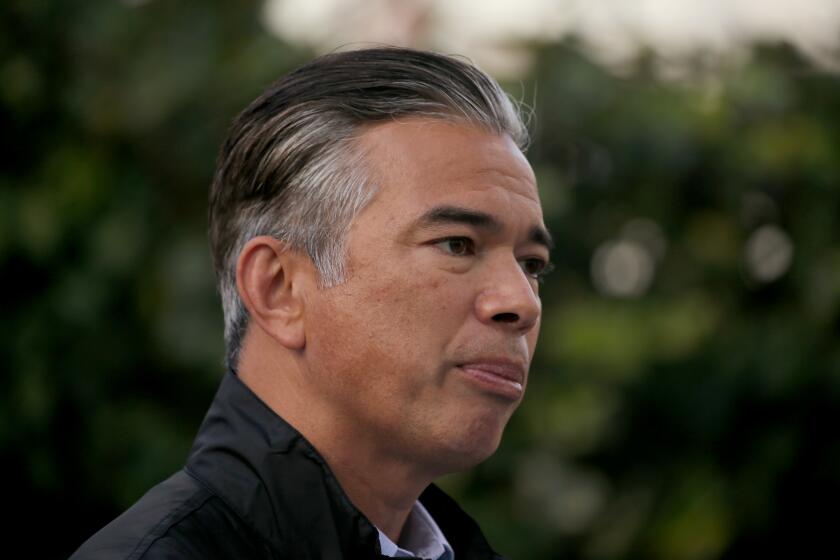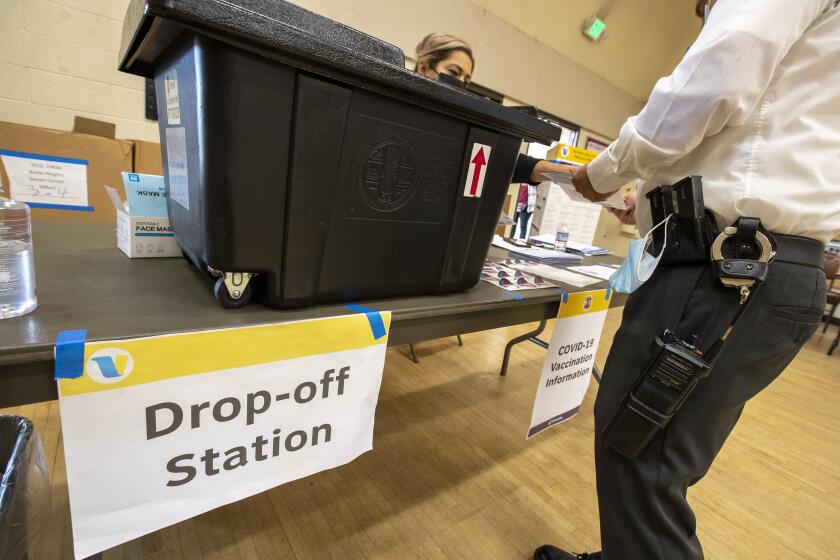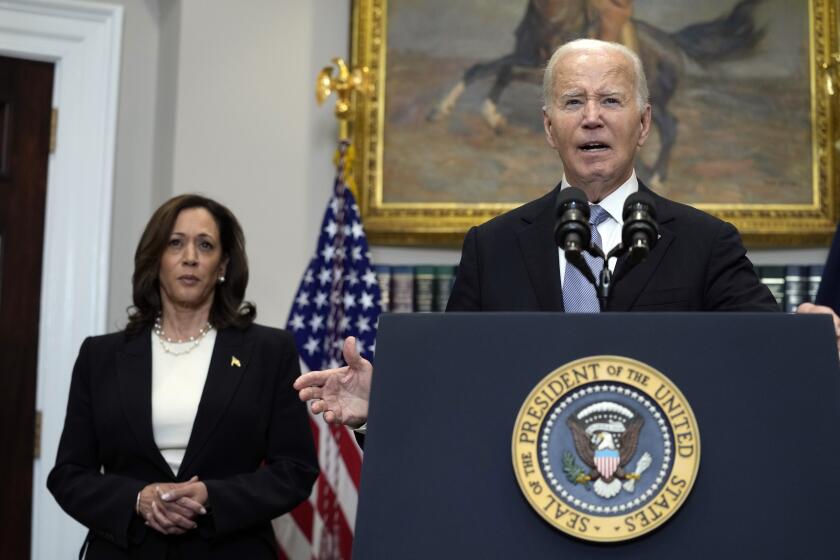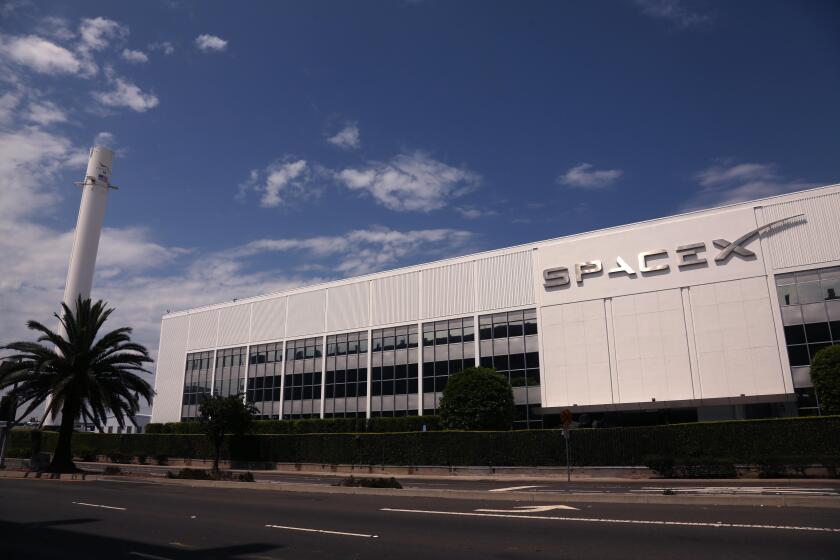Editorial: Election night results are a thing of the past
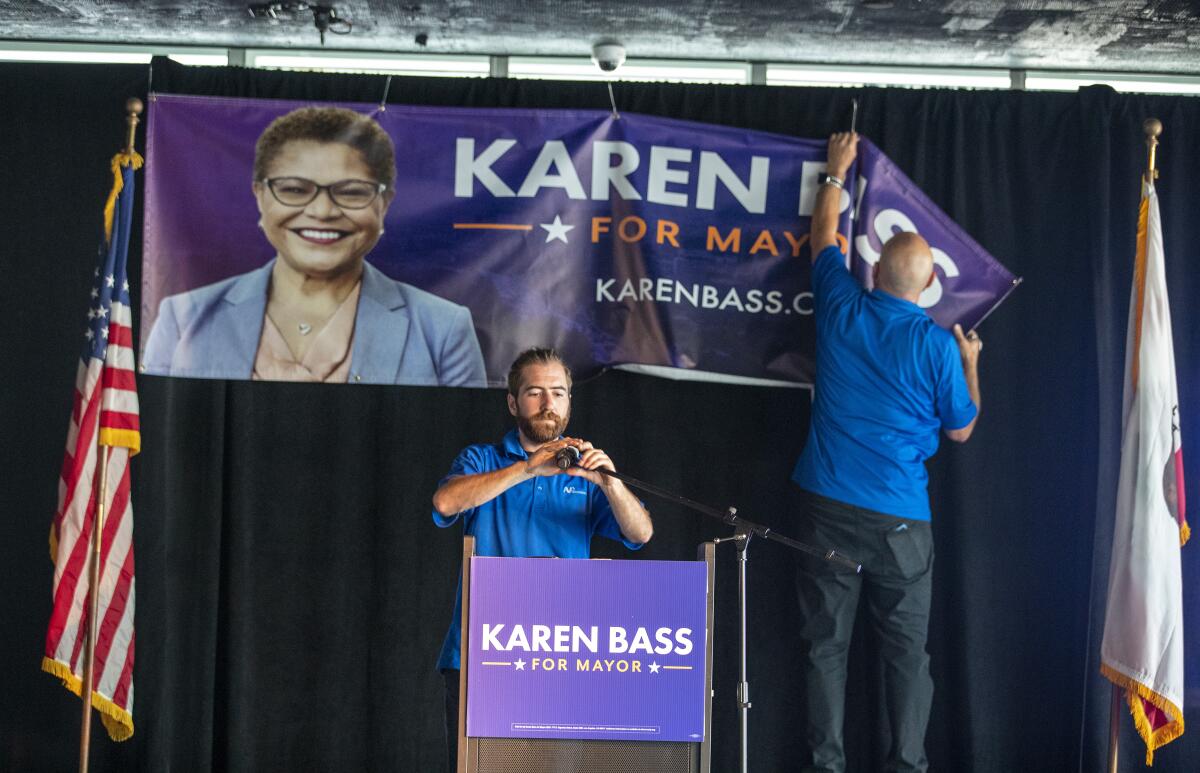
California has radically changed the way voters cast their ballots over the last several years. Every registered, active voter is mailed a ballot. People can vote in person, submit their ballot at an official drop box or polling place days and even weeks before “election day,” or stick it in the mail, as long as it’s postmarked before 8 p.m on the final day of voting.
Those changes make it much easier to vote and it’s why a lot more people cast ballots than in recent non-presidential primaries. That’s good for civic engagement and good for democracy.
But it’s not good for fast results, political punditry and immediate gratification.
Just look at the June 7 primary. In the hours after the first results were posted online by county and state officials, there were plenty of declarations that the election was a “progressive backlash” and an “urban revolt” because the recall of San Francisco Dist. Atty. Chesa Boudin, a criminal justice reform champion, appeared to have overwhelming support and Rick Caruso, the once-Republican, now tougher-on-crime candidate for Los Angeles mayor, had a strong lead in the race.
Tuesday’s election produced some victories for California’s criminal justice reform movement despite Chesa Boudin’s recall
A week later, the portion of votes in favor of recalling Boudin had shrunk from 60% to 55%; he’s still out of the job but it’s not a landslide. And Karen Bass, the more progressive candidate for L.A. mayor, is now leading in the race — and the results in that race could change again. Los Angeles County still has 365,000 ballots left to count.
And there have been other big shifts too. Last week it looked as though Los Angeles City Councilmember Gil Cedillo would win reelection. This week policy advocate Eunisses Hernandez is leading the race by nearly 300 votes. Whoever wins the primary, wins the seat. In the San Fernando Valley’s 20th state Senate District, the early returns suggested Daniel Hertzberg — son of the current holder of the seat, his father Bob Hertzberg — would face Republican Ely De La Cruz Ayao and most likely coast to an easy victory. As more votes were counted, Democrat Caroline Menjivar rose to second place, which would mean a more competitive Democract-vs.-Democrat runoff in November. Each batch of votes counted has brought big changes in key races, and there are still more batches to come.
Californians have changed the way they vote, but expectations of immediate election results haven’t. Voters, politicians and the media still want to know the winners and losers on election night or the day after. Perhaps that was possible in years past when most voters cast ballots in person. But it’s simply not feasible when more than 80% of ballots in L.A. and California are cast by mail and may not arrive until a week after the polls close.
Moreover, this outdated expectation plays into the false narrative pushed by former President Trump and others that elections should be decided on election night and that mail-in ballots received after election day are somehow illegitimate. In the 2018 general election, the results in some close congressional races in California flipped from Republicans to Democrats between election night and the following days, prompting some people who should know better to hint that it was the result of election fraud.
California has now conducted two successful all-mail ballot elections. It makes sense to continue holding elections this way.
So it’s time to update our mindset and terminology to match our modern methods of voting. Instead of election day, we should call it election month — because most voters receive and can cast their ballots up to four weeks before the last day of voting. Election night is simply when the first batch of results is released. State and county elections officials should make that abundantly clear in statements and on their websites. And while it’s fine for candidates to hold celebrations on the final day of voting, they might want to schedule their victory parties for a few weeks later.
Elections have a new rhythm in California. They’re slower and require more patience. This new, more inclusive voting system is designed to coax every vote possible and allow plenty of time to count them.
More to Read
A cure for the common opinion
Get thought-provoking perspectives with our weekly newsletter.
You may occasionally receive promotional content from the Los Angeles Times.
